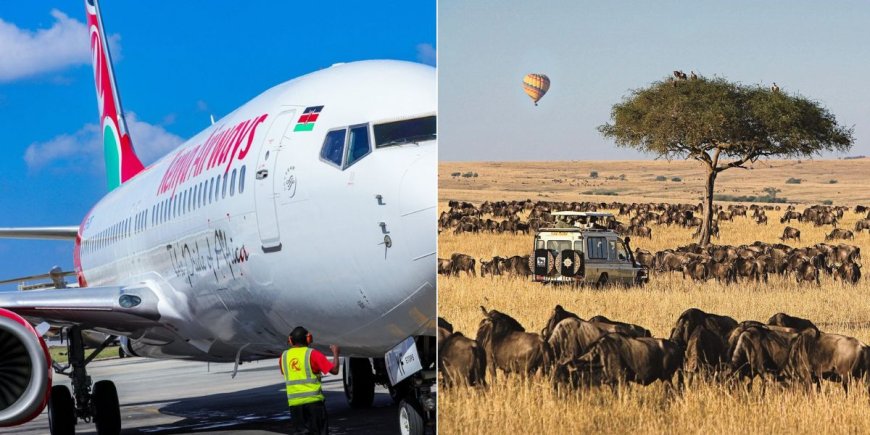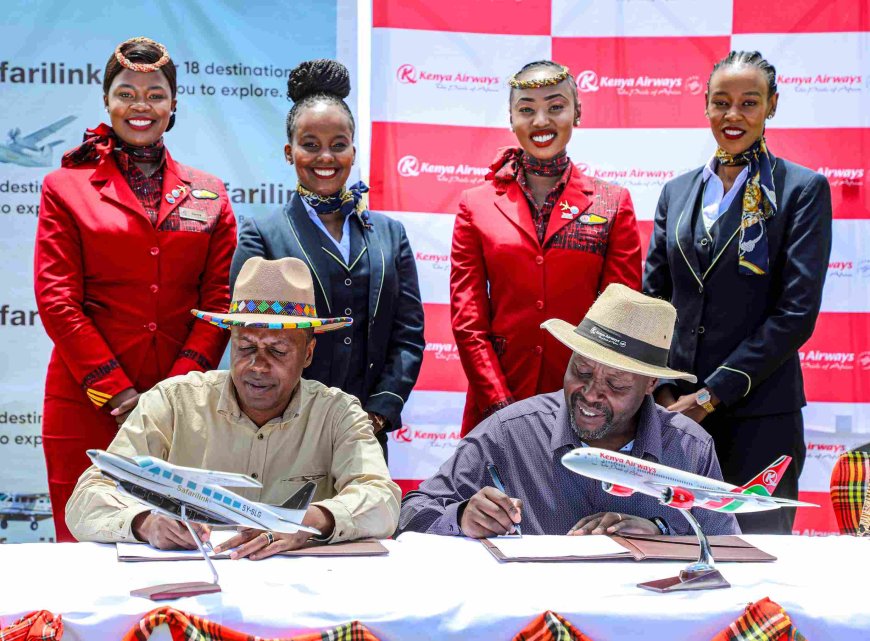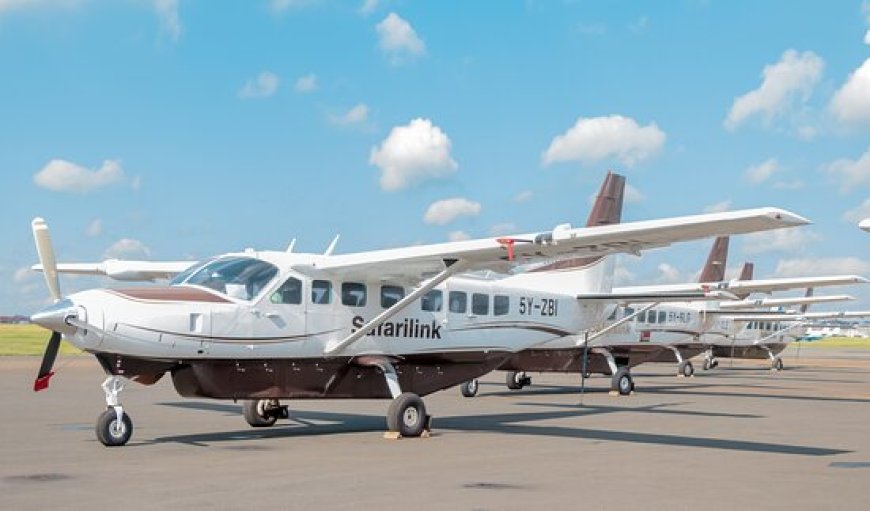Fly To Maasai Mara & 8 Destinations On One Kenya Airways Ticket; Here's How
Under the one-way codeshare, KQ’s international flights will now connect directly with Safarilink’s twice-daily service to nine key safari airstrips

In a major boost for Kenya’s tourism sector, Kenya Airways (KQ) has inked a strategic codeshare agreement with domestic carrier Safarilink Aviation, setting a new standard for safari travel in the region.
According to a statement to newsrooms, the deal allows international travellers to book flights to Kenya’s iconic safari hotspots — like the Maasai Mara, Amboseli, Nanyuki, and Samburu — on a single ticket, eliminating the hassle of juggling multiple bookings.
Under the one-way codeshare, KQ’s international flights will now connect directly with Safarilink’s twice-daily service to nine key safari airstrips, streamlining the journey from global gateway to wilderness escape.
"Kenya Airways’ global customers will now be able to book their international flights and domestic safari connections on a single ticket, creating a seamless and convenient travel experience. KQ’s extensive international network will now connect with two (2) daily flights to nine (9) key airstrips in the Maasai Mara, as well as Amboseli, Nanyuki, and Samburu," read the statement in part.

Safarilink Aviation Chief Executive Officer Alex Avedi and Allan Kilavuka, Managing Director and Chief Executive Officer (CEO) when Kenya Airways signed a one-way codeshare partnership agreement on April 25, 2025. /KENYA AIRWAYS
Allan Kilavuka, Managing Director and Chief Executive Officer (CEO) of Kenya Airways, hailed the partnership as one that exemplifies smart innovation, bridging Kenya Airways’ global reach with Safarilink’s expertise in last-mile connectivity to key safari destinations.
“Together, we are optimising aircraft use, reducing ground delays, and offering our guests more flexibility and smoother journeys. Importantly, by enhancing access to these remote airstrips, we are also empowering local communities and supporting conservation efforts, as tourism is the heartbeat of Kenya," he remarked.
This strategic collaboration eliminates the need for separate bookings and offers a streamlined journey for tourists seeking unparalleled wildlife encounters.
In 2024, leisure travel accounted for the largest portion of tourist arrivals in Kenya at 44.2 percent, highlighting the significant demand for accessible and high-quality safari adventures.
Safarilink Aviation Chief Executive Officer (CEO), Alex Avedi, highlighted, “Safarilink is delighted to partner with Kenya Airways to offer a truly seamless travel experience to some of the most iconic safari destinations in Kenya.”
“Our fleet of Cessna Caravans and Dash-8 aircraft is perfectly suited to provide quick and efficient access to these remote airstrips, ensuring that visitors can maximise their time exploring the wonders of the Kenyan wilderness," he added.
Speaking during the launch event, Julius Thairu, the Chief Commercial and Customer Officer (CCCO) at Kenya Airways, noted that Kenya’s reputation as a world-class tourism destination, particularly for its exceptional safaris, continues to attract travellers from across the globe.
He further added that the strategic partnership with Safarilink directly addresses the needs of today’s travellers who prioritise efficiency and reliability. "By offering a single-ticket solution, we are making it easier and more convenient than ever for our customers to experience the magic of a Kenyan safari," he mentioned.
This partnership is a significant step in Kenya Airways’ broader growth strategy, aiming to attract a wider audience by offering an enhanced and more convenient product solution. It provides a competitive edge in the market and strengthens relationships with travel trade partners.
Code sharing is a partnership between two airlines that allows an airline to place its two-letter identification code on the flight schedules of another airline. This means that flights can be marketed by one airline and operated by another.
As a business arrangement between airlines, a codeshare can help expand into markets where they might not be as well known, extend their network coverage for a greater global reach and ultimately offer more opportunities to increase profits by selling tickets on more flights.
Simply put, code sharing allows airlines to sell tickets to destinations they do not fly to. These agreements allow airlines to offer numerous flights without additional equipment, resources, and costs.
Code sharing also provides passengers with a wide choice of flights and also makes booking, checking in, luggage handling, and travelling more convenient. Plus, the coordinated schedules make sure you have enough time for all your connections.







